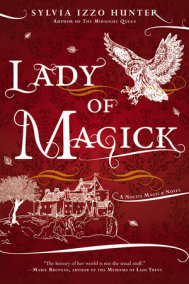

So it seemed like a good match for A Thinking Woman’s Guide, where a contemporary woman is thrown into a world where women are still second-class citizens, at best. Well, Pride and Prejudice is so modern in many ways, although written and set in a premodern time. What is the significance of this particular book? Any personal connection to it?Ī. You have so many literary references, John Donne, Miguel de Cervantes, William Carlos Williams, Alice in Wonderland and Grimm’s Fairy Tales, but it’s Jane Austen’s Pride and Prejudice that Nora ends up with as her only possession in the alternate world. I also think the kind of idealized femininity that Ilissa offers Nora-being beautiful, being the belle of the ball, having this perfect romantic love-is a very seductive thing, even for someone like Nora who has read all the feminist theorists and has really chosen the life of the mind. Nora was feeling bruised and defeated, and suddenly she had everything that she thought she was missing. As Aruendiel himself would point out, Faitoren enchantments are very hard to fight, because they give you something you want. Why would she allow herself to be easily enchanted?Ī. Even though a part of her knew it wasn’t right she stayed. Your heroine, Nora Fischer, is swept away by magic into a kind of too good to be true existence. You could never get me to go up a cliff like the one at Maarikok, even with a levitation spell! And I let her take a path that I considered but never took-going to grad school in English. I gave Nora some of my interests-a penchant for memorizing bits of poetry, a love of cooking-although she’s much better at both things than I am. It’s the idea that you have a calling that you have to follow and you don’t sell out.

My dad was the kindest and most gentle person ever, but he was ruthless when it came to criticizing bad art. The way Aruendiel talks about other magicians-I was thinking of how my father, who was a painter, used to talk with his artist friends about other artists, about who was doing good work and who wasn’t. There were things in my life that I deliberately borrowed for the novel.


You mean, is it about the time I stumbled into an alternate world and started studying magic? Sadly, no. Are any parts of this novel autobiographical?Ī. Because she’s also honest-Faitoren can’t tell lies-but at the same time, she’s thoroughly deceitful. Of course, Ilissa was also a lot of fun, too. Not something that most of us can get away with in our daily lives. He says exactly what he thinks, and he doesn’t mind giving offense to anyone. Which of the characters in The Thinking Woman’s Guide To Real Magic did you most enjoy writing?Ī.


 0 kommentar(er)
0 kommentar(er)
